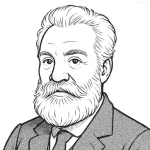“Contradiction is not a sign of falsity, nor the lack of contradiction a sign of truth.”

- June 19, 1623 – August 19, 1662
- French
- Mathematician, Physicist, Inventor, Philosopher, Theologian
table of contents
Quote
“Contradiction is not a sign of falsity, nor the lack of contradiction a sign of truth.”
Explanation
Pascal challenges the assumption that logical consistency always equals truth, and that inconsistency necessarily implies error. A contradiction may reflect the complexity of reality, the limitations of language, or the imperfection of human understanding—not falsehood. Conversely, a statement or system may appear perfectly consistent and yet be entirely wrong, either because it is built on false premises or overlooks essential truths.
This insight aligns with Pascal’s philosophical project in Pensées, where he explores the paradoxes and dualities of the human condition—our greatness and our wretchedness, our rationality and our passions. Living in an era of emerging rationalism, Pascal recognized that truth is not always neat or reducible to logic. In matters of faith especially, apparent contradictions may point not to error, but to the mystery and depth of what lies beyond reason.
In the modern world, Pascal’s warning is increasingly relevant. In debates, politics, or media, people often prize consistency over substance, assuming that tidy narratives must be true. But history and science show otherwise: great discoveries often began with contradictions, and systems that look coherent—like conspiracy theories or propaganda—can still be fundamentally false. Pascal reminds us that critical thinking requires more than just detecting contradictions—it requires wisdom, nuance, and humility.
Would you like to share your impressions or related stories about this quote in the comments section?



